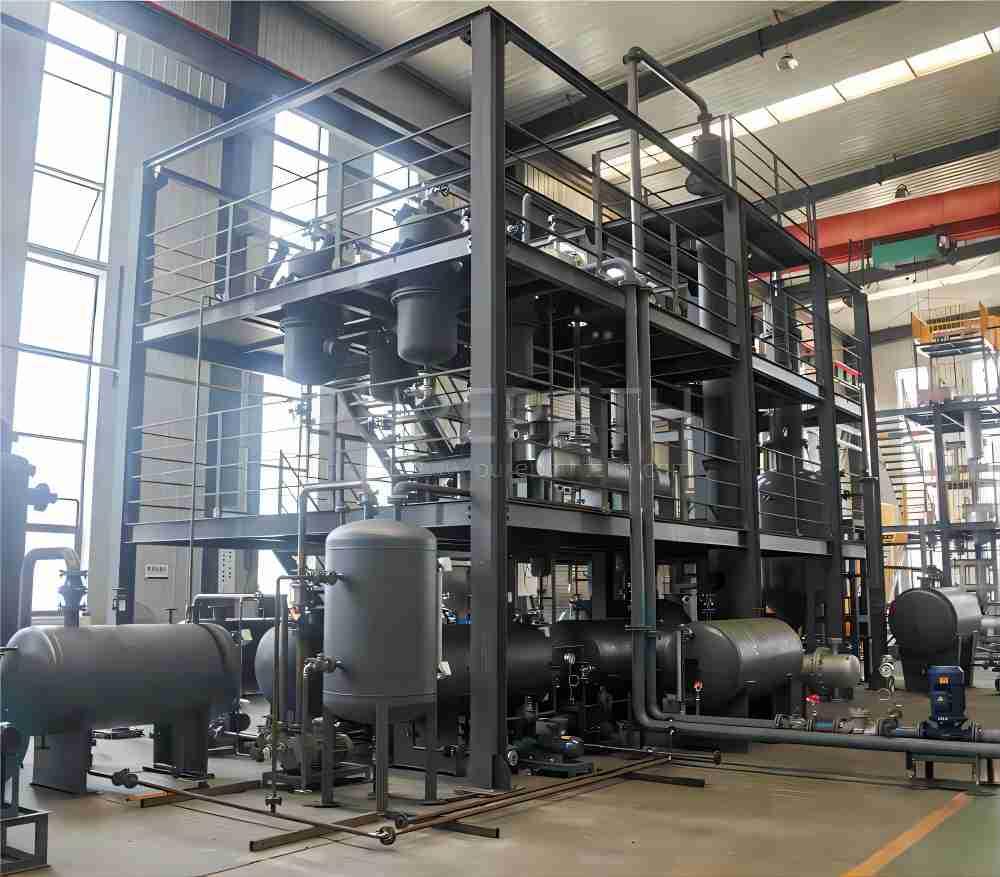In the grand narrative of sustainability, recycling has emerged as a crucial protagonist. With mounting concerns over environmental degradation and resource depletion, industries are increasingly turning towards recycling to mitigate their ecological footprint. Among the myriad of materials targeted for recycling, waste oil stands out as a particularly potent yet underutilized resource. As we peer into the future, the recycling industry is poised for a paradigm shift, with waste oil recovery leading the charge towards both environmental stewardship and economic prosperity.
The Rise of Waste Oil Recovery
Waste oil, often generated from industrial processes, automotive operations, and even household use, has long been viewed as a problematic byproduct. Historically, improper disposal methods have led to environmental contamination and adverse health effects. However, as awareness of environmental issues has grown, so too has the recognition of waste oil's potential as a valuable resource.
Enter waste oil recovery – a process that salvages used oil, refines it, and transforms it into usable products. This transformative approach not only reduces the environmental impact of waste oil but also creates new economic opportunities. With advancements in technology and innovative recycling methods, waste oil recovery has emerged as a cornerstone of the recycling industry's future.
Economic Implications of Waste Oil Recovery
The economic benefits of waste oil recovery extend far beyond environmental conservation. By harnessing this untapped resource, the recycling industry stands to unlock a multitude of economic opportunities:
Job Creation:
The establishment of waste oil recovery facilities and associated infrastructure creates employment opportunities across various sectors. From skilled technicians to research scientists, the demand for talent in waste oil recycling fosters job growth and economic development.
Revenue Generation:
Recovered waste oil can be refined into valuable products such as lubricants, fuel oils, and even asphalt. These products not only substitute for virgin materials but also generate revenue streams for recycling companies. As the market for recycled products continues to expand, waste oil recovery becomes increasingly lucrative.
Resource Conservation:
By reusing waste oil as a feedstock for new products, the recycling industry mitigates the demand for virgin resources. This conservation of raw materials not only reduces extraction pressures on the environment but also stabilizes commodity prices, benefiting industries reliant on these resources.
Environmental Benefits of Waste Oil Recovery
Beyond its economic implications, waste oil recovery plays a pivotal role in advancing environmental sustainability:
Pollution Prevention:
Improper disposal of waste oil poses significant environmental risks, including soil and water contamination. By recovering and recycling waste oil, the recycling industry prevents pollutants from entering the ecosystem, safeguarding environmental health and biodiversity.
Carbon Footprint Reduction:
The production of virgin oils and fuels is energy-intensive and contributes to greenhouse gas emissions. By recycling waste oil, which requires less energy than producing new oil, the recycling industry helps mitigate climate change by reducing carbon emissions and conserving energy resources.
Circular Economy Promotion:
Waste oil recovery exemplifies the principles of a circular economy, where resources are continuously recycled and reused. By closing the loop on waste oil, the recycling industry moves towards a more sustainable model of resource management, minimizing waste and maximizing value.
The Path Forward
As we contemplate the future of the recycling industry, waste oil recovery emerges as a beacon of hope and opportunity. By harnessing the economic and environmental potential of waste oil, recycling companies can pave the way for sustainable growth and prosperity. However, realizing this vision requires concerted efforts from policymakers, businesses, and consumers alike.
Governments must enact supportive policies that incentivize waste oil recovery and promote investment in recycling infrastructure. Businesses must embrace sustainable practices and prioritize the incorporation of recycled materials into their operations. And consumers must cultivate a culture of recycling and conscious consumption, recognizing their role in driving demand for recycled products.
In the journey towards a greener, more prosperous future, waste oil recovery stands as a testament to the transformative power of recycling. By turning waste into wealth, we not only mitigate environmental degradation but also foster economic growth and resilience. As we embark on this collective endeavor, let us seize the opportunity to redefine our relationship with waste and chart a course towards a more sustainable tomorrow.

